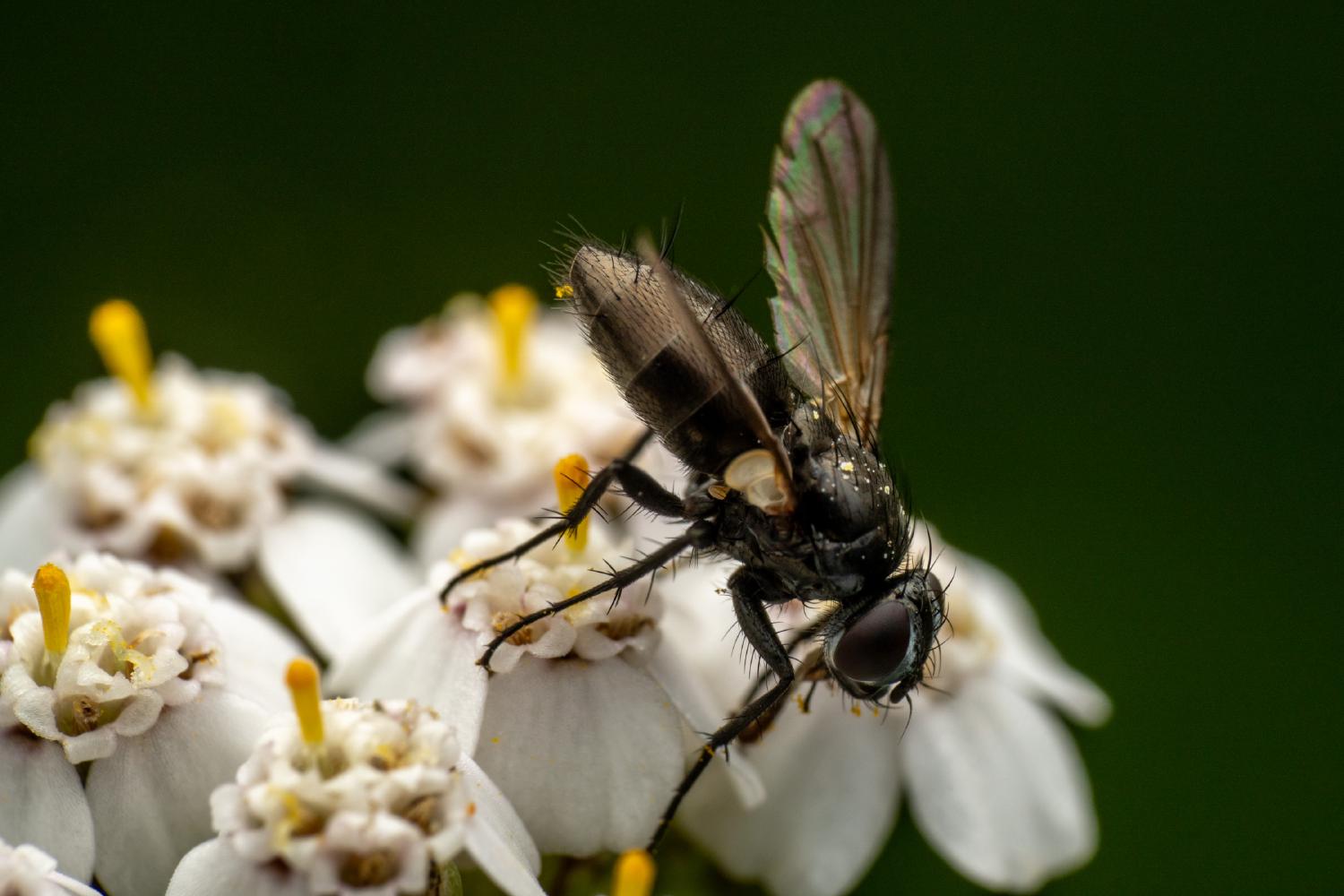Zophomyia temula
Lat. “Zophomyia temula“
species
of family
“Bristle Flies“
1 species
Summary: Zophomyia temula is a common species found in Europe, Transcaucasia, Kazakhstan, and South Siberia. They prefer meadows, woodland areas, hedge rows, and moist environments. These flies are shiny black in color with a body length of 8-10.5 mm and a wingspan of 15-17 mm. They have long, heavily hairy legs and mostly hyaline wings that are yellow-orange at the base. Adults feed on nectar and pollen of flowers, while larvae are parasitoids with unknown specific hosts.
Distribution
This rather common species has a European distribution, and includes Transcaucasia, Kazakhstan and South Siberia.
Habitat
These flies preferably inhabit meadows, woodland, hedge rows and moist environments and they can usually be found in the grass and on low-hanging leaves.
Description
Zophomyia temula can reach a body length of approximately 8–10.5 millimetres (0.31–0.41 in), with a wingspan of 15–17 mm.These fiies are shiny black on thorax and abdomen. Also legs and hairs are completely black, including the small setulae on the back of the head. This feature is quite unusual in the family Tachinidae. Moreovers the eyes are not so big and they are only sparsely haired. The body is quite slim and slightly elongated. The legs are relatively long and heavily hairy. The wings are mostly hyaline, but they are markedly yellow-orange at the base. This species is rather similar to Mesembrina meridiana, belonging to the Muscidae family, characterized by a larger size and by the typical round shape of the true fly.
Biology
Adults can be found from April to August, feeding on nectar and pollen of flowers, especially of Heracleum sphondylium. Larvae are parasitoids, living literally into their hosts, until they die. The specific hosts are unknown.
External links
Tachinid Recording Scheme Natura Mediterraneo
Ancestry Graph
Further Information
Copyright

This article uses material from the Wikipedia article Zophomyia temula the free encyclopedia Wikipedia which is released under Creative Commons Attribution-ShareAlike 4.0 International License). On Wikipedia a list of authors is available.
